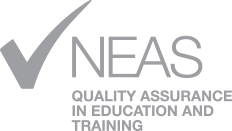
Experiential Approaches in Online Language Assessment Training
Conference 21.20
Presented by
Dr Marie Yeo
Regional Language Centre Singapore
The use of classroom-based formative assessment (CBFA) has become increasingly common, even more so now due to the COVID-19 pandemic. Teachers may have to implement formative assessment practices such as peer-assessment, self-assessment and reflection or use e-portfolios to assess their learners, yet they themselves may never have experienced these activities.
Approaches, such as Kolb’s Experiential Learning Cycle, have been shown to be highly effective for adult learning, especially in sustaining changes in beliefs and practices. In this presentation, I describe the experiences of teachers of English from the ASEAN region enrolled in an online language assessment course as they engage concretely in activities related to “feedback and feedforward”, Assessment as Learning, and Formative Use of Summative Test (FUST). Through these concrete first-hand experiences, the teachers were able to gain a deeper understanding of formative assessment concepts and principles, and the benefits and challenges of applying them in their specific teaching contexts.
This presentation offers insights into CBFA and teacher professional development in online and face-to-face contexts and is intended to enhance both the assessment literacy of language teachers and the training delivery of teacher educators, especially those working in the ASEAN context.
Presenter Bio
Marie Yeo is a Senior Language Specialist at the SEAMEO Regional Language Center (RELC) in Singapore, where she teaches on a range of teacher education programs. For the past 30 years, she has taught English, trained teachers and trainers and managed educational projects in countries including Australia, China, Cambodia, Singapore and Vietnam. Her current areas of interest are Language Assessment, Teacher Professional Development and Blended Learning. Marie is currently Editor-in-Chief of the RELC Journal and her most recent publications include a guidebook on teacher professional development, a chapter on blended learning and a journal article on academic publishing.
CPD points: 1
